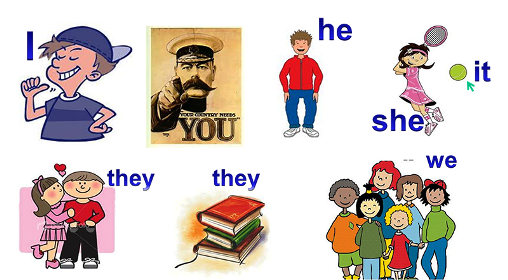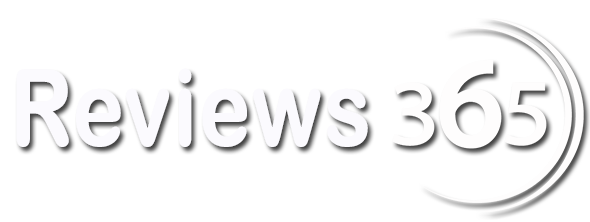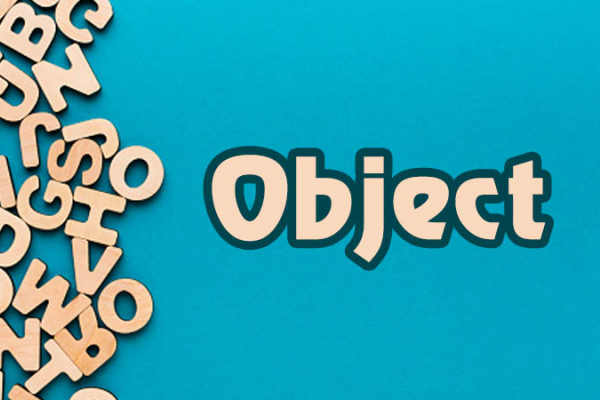- What are punctuation marks in English? How to use punctuation marks in English
- Present simple tense: structure, usage, passive of present simple tense
In English grammar, the object can be a noun, noun phrase or pronoun that is influenced by the action of the verb. Today's article will help you answer the question "What is an object language?" Join reviews365 to learn about knowledge and exercises right in the article below!
1. What is an object language?
In English, the term Object simply refers to the object that is affected by the subject, usually a word or phrase followed by an action verb. Note that in a sentence, there can be many different objects.
Eg:
- I play football. (I play football.)
- My mother gives me some flowers. (My mother gave me some flowers.)
Note: Both “me” and “some flowers” are objects.
When you need to determine the object, in addition to after the verb, you can ask the question: "Who/What takes the action?" such as “Who gets flowers from my mother?”, “What did my mother give me?” or “What am I playing?”.

2. Classification of objects in English
Look again at the example definition: “My mother gives me some flowers”, where “me” and “some flowers” are both objects. Do you wonder what's the difference between these two objects? The answer is yes.
In English, based on the position and meaning of the object in the sentence, we divide into three types of objects.
Direct object language
Direct object: the person/thing that receives the first effect of the action
Eg:
- I caught a fish. (I caught a fish.)
- I read a book. (I read a book.)
- I love him. (I love him.)
Indirect object language
Indirect object: the person/thing to whom the action occurs (or is intended for) that person/thing.
Indirect objects often appear when there are two objects in a sentence.
Eg:
- He gives me a book – “me” is an indirect object. (He gave me a book.)
- He gives a book to me – “me” is still an indirect object. (He gave me a book.)
Note: When there are 2 objects in a sentence, the indirect object will come after the preposition (for, to) or right after the verb (when there is no preposition).
The object of the preposition
Preposition objects: words/phrases that come after a preposition in a sentence.
Eg:
- The book is on the table. (The book is on the table.)
- I want to go out with you. (I want to go out with you.)
3. The form of the object in an English sentence
In a grammatically correct sentence, the object can be in the form of a Noun, a Personal pronoun, an Infinitive or a V_ing Verb.
Objects are nouns
Noun: Nouns can be used as both direct and indirect objects in a sentence.
Eg:
- My friends went to the cinema last night. (My friend went to the movies last night.)
- I help my mom do the housework. (I help my mother with the housework.)
The object is a personal pronoun
Personal Pronoun: A personal pronoun includes the subject pronouns used as the subject and the object pronouns used as the object.
Eg:
- I love you (I love you)
- They like us (They like us)
In the example above, we can see:
- I and They are subject pronouns that stand in the position of the subject in the sentence.
- You and Us are predicate pronouns that stand as objects in a sentence.
The object is the infinitive (to Verb)
Many people think that the object is just a noun or a pronoun, but that is not the case. Some verbs in English require another verb in the "to verb" form, in which case, the following infinitive is considered an object.
Eg:
- I agree to go out with you. (I agree to go out with you.)
- I want to watch TV. (I want to watch TV.)
The object is a verb in the form of V_ing (Gerund).
Similarly, some verbs in English require another verb in the V_ing form, then the following V_ing verb is considered an object.
Eg:
- I consider studying English with my friends. (I consider learning English with my friends.)
- I imagine traveling to France. (I imagine traveling to France.)
An object is a clause in a sentence
Clause: "More words" a bit more, the object can even be in the form of a whole clause.
Eg:
- She knows how he can pass the exam. (She knows how he can pass the test.)
- I can sympathize with what you are feeling now. (I can agree with what you're feeling right now.)
4. Exercises on object language
Exercise 1
Choose the right word to fill in the blank
- (I/me) __like London.
- The children are as hungry as (we/us) __.
- All the students passed except (I/me) __.
- (They/them) __ love vegan food.
- We all like cake except (she/her) __.
- (He/him) __ will get a new phone soon.
- His sister isn't as tall as (he/him) __.
- Is that chocolate for (I/me) __?
- (She/her) __ wants to go home early.
- Everyone arrived on time but (he/him) __.
- Please keep up with (we/us) __.
- (We/us) __ have been to Rio.
- Could you pass the coffee to (she/her) __?
- My brother is taller than (I/me) __.
- (I/me) __ went to the bookshop yesterday.
- Our new teacher is friendlier than (she/her) __.
- All the children came inside except (they/them) __.

Exercise 2
Fill in the appropriate pronoun to replace the noun in brackets:
- ………….is dancing. (John)
- ………….is black. (the car)
- …………. are on the table. (the books)
- …………. is eating. (the cat)
- …………. are cooking a meal. (my sister and I)
- …………. are in the garage. (the motorbikes)
- …………. is riding his motorbike. (Nick)
- …………. is from England. (Jessica)
- …………. has a sister. (Diana)
- Have…………. got a bike, Mary?
Exercise 3
Fill in the blanks with suitable pronouns:
- ………….am sitting on the chair.
- …………. are listening radio.
- Are…………. from Australia?
- …………. is going to school.
- …………. are cooking dinner.
- …………. was a nice day yesterday.
- …………. are watching TV.
- …………. are playing in the room.
- Are…………. in the supermarket?
Answer
Answers to exercise 1
- I
- us
- me
- They
- her
- he
- him
- me
- She
- him
- us
- We
- her
- me
- I
- her
- them
Answers to exercise 2
- He is dancing. – He is dancing.
- John will be referred to as He: the 3rd person singular subject pronoun as the subject of the sentence.
- It is black. – It (is) black. The car is an object.
- It is the subject pronoun as the subject in the sentence
- They are on the table. – They are on the table.
- The books is plural They: the subject pronoun as the subject in the sentence.
- It is eating. – It is eating.
- The cat is a domestic animal, it can be called he/she but in this case we don't know its gender so replace it with It: the subject pronoun.
- We are cooking a meal. – We are cooking a meal.
- My sister and I are 2 people – plural should use We: subject pronoun
- They are in the garage. – They are in the garage.
- The motorbikes has s in the plural, so use They: the subject pronoun of the sentence.
- He is riding his motorbike. – He is riding his motorbike. Nick is a male name, 3rd person singular – He: subject pronoun
- She is from England. – She is from England.
- Jessica is a woman's name, 3rd person singular – She: subject pronoun
- She has a sister. – She has an older sister/sister.
- Diana is a woman's name, 3rd person singular – She: subject pronoun
- Have you got a bike, Mary? – Do you have a bicycle, Mary?
Answers to exercise 3
- I am sitting on the chair. (I'm sitting on a chair.)
- We are listening radio. (We are listening to the radio.)
- Are you from Australia? (Are you from Australia.)
- He is going to school. (He is going to school.)
- They are cooking dinner. (They are cooking dinner.)
- It was a nice day yesterday. (Yesterday was a great day.)
- We are watching TV. (We are watching TV.)
- Is she Mary's sister? (Is she Mary's sister/sister?)
- You are playing in the room. (You are playing in the room)
- Are they in the supermarket? (Are they at the supermarket?)
Although the "object" is known so much, there are still many things that you do not know! Hopefully some of you will be able to answer the question “What is an object language?” and improve their English knowledge through the exercises summarized at the end of the article.








Để lại bình luận
5